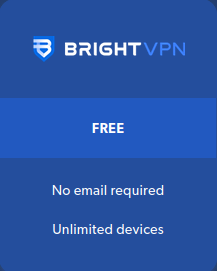Protecting one’s personal data and anonymity online in general is becoming more and more important: various bans in different countries, regionalization of the audience and similar actions actively contribute to this.

But how to bypass the restrictions and at the same time not get into the lens of tracking programs (trackers, analytics, etc.)? There are various technical ways to do this, and anonymous proxies are one of them.
What are anonymous proxies?
A proxy server is a node in a network that acts as an intermediary (representative) between an Internet user and an endpoint of requests. Web services, Internet sites, game servers, other PCs, etc. can act as an endpoint.
Depending on how proxies translate transmitted requests, the following types of proxies can be distinguished:
Transparent proxies – in this case, the proxy server redirects all requests entered by the user unchanged (the real IP address is transmitted and therefore easily traceable in the body of the HTTP header), just as a human would do. The server acts solely as a reference point of an alternative route from the user to the final node, so you can bypass regional restrictions of communication providers (when blocking certain IP-addresses or domain names), filter traffic or compress it, perform other actions with minimal cost. Since using transparent proxies does not require any browser or other software configuration (all settings are stored on the router or other switching equipment), the connection process looks as transparent as possible for the user, hence the name of this type of proxy.
Distorting proxies are proxy servers that remove some important data from requests, leaving only those that will help identify a particular client in its own network (on its own server), so that it is easier to distribute traffic, manage connections and redirects. For example, instead of the full IP address of a client, only half of it (the first two blocks) will be used. Backtracking on the end node side will be noticeably more difficult. Nevertheless, the client data is still transmitted in a partially public form.
Anonymous proxies are proxy servers that completely remove real client IP addresses from HTTP headers (neither part of the address nor the full address is transmitted). However, there are indications that the client is using the proxy server as an intermediary. In other words, the end node will be able to realize that you connected to it through a proxy, but from where exactly, it will not be able to understand.
Elite proxies are proxy servers that completely remove from the headers all signs that the client is using a proxy. In this case, requests are sent on behalf of the server itself (with its IP and other signs), which may be inconvenient for certain tasks. But it is definitely anonymous.
If we talk about the ways of getting access to proxies, there are open proxies (a server to which anyone can connect), shared proxies (a server used by several clients at the same time) and private proxies (aka private or individual proxies, i.e. a server that is given for use to only one client on a one-to-one basis).
The Froxy service offers elite (fully anonymous) individual proxies for rent.
How do anonymous proxies hide your identity?
When it comes to transmitting confidential information or bypassing blocking, a legitimate question always arises – “How will the proxy process my data?”.
Let’s explain below.
When you, or rather your browser or other software, sends requests to the end node (site, server, etc.), the program establishes a connection and transmits a so-called IP packet.
The sender and recipient addresses are mandatory. The first is needed to return a reply (as in mail) and the second is needed to deliver it directly to the addressee.
The IP address is your identifier on the network. It can be static (if you have rented a fixed IP from your provider or you are a telecom operator yourself) or dynamic (this is when addresses are rotated from the provider’s pool, this approach is used when there are not enough IP addresses at the provider’s disposal for all clients). But whatever the IP address is, static or dynamic, the ISP can always associate it with its real client through its session history.
If a transparent or distorting proxy sends your requests unchanged or with minimal modification, an anonymous proxy server completely substitutes your data in the IP packet for its own.
The receiving party has no way of tracking you or contacting you directly. All that the end node sees is the data of the proxying server, and it is to this server that it can send a reverse request.
But when working with anonymous proxies it is worth considering the following points:
Proxies hide (substitute) only your real IP, all other data, for example, HTTP headers, addresses of sites you access and other information from IP packets remains unchanged.
You only hide your location from the end host. For example, your telecom provider, with due attention and technical capabilities, will be able to analyze all your traffic and recover your activity history.
To hide your personal information as much as possible, including passwords, logins and bank card numbers, you need to use encryption algorithms and other means of hiding your online activity. No proxies do this.
Proxies, even if they are anonymous, cannot provide the full range of security and privacy protection. They only redirect traffic (IP packets).
Advantages of using anonymous proxies
Firstly, anonymous proxies are almost always private, i.e. they are sold to one person – they are not used by anyone else in parallel. Therefore, the connection speed will be as fast as possible for this type of channel (depending on the type of end device, there are mobile, resident, and server proxies).
Secondly, websites and web-services, with which you interact through anonymous proxies, cannot track your location and learn your real IP-address.
Thirdly, our anonymous proxies are quickly rotated (on time or on demand), which ensures minimal chance of blocking or showing captchas.
Fourth, you can virtualize your location. Just rent or select proxies in all the locations you need (depending on the service provider’s capabilities). Froxy provides targeting down to the city and service provider level.
Fifth, anonymous proxies are best suited for many business tasks and for bypassing blocking (see below for examples).
Examples of using anonymous proxies
In what situations anonymous proxies will definitely help you:
Monitoring competitors’ prices and offers.
Content parsing (mass parallel queries).
Bypassing regional blocking of communication providers when viewing content.
Marketing research.
Checking the work of contractors (for example, those who realize for you the purchase of advertising or promotion in the network with reference to different regions).
Getting the best product and price offers (if the manufacturer or distributors have different pricing policies for different locations).
Promotion and promotion in social networks.
Behavioral factors and other SEO tasks.
Monitoring of positions in search engine results.
etc.
